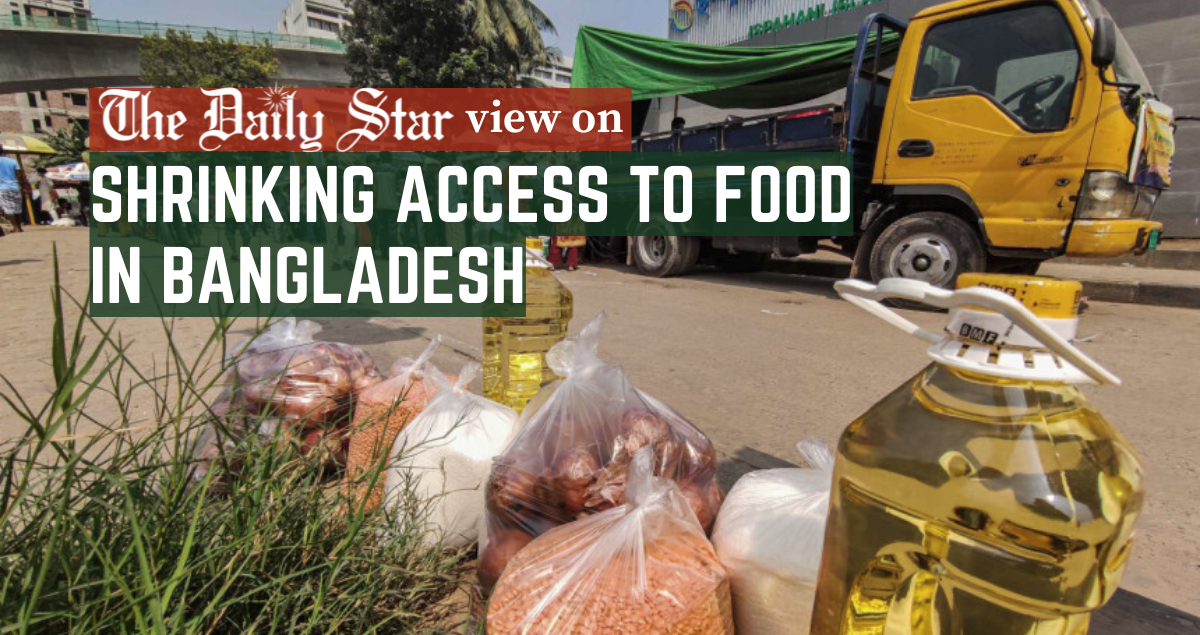Oil, sugar price hike yet another shock to the economy

Earlier this month, the Bangladesh Bureau of Statistics (BBS) released data that gave us the impression that the country's galloping inflation rate might have cooled ever slightly, with food inflation dropping down to 8.5 percent in October from 9.08 percent a month earlier. While this means that the average inflation of 8.75 percent so far in this fiscal year is still a long way off the target of 5.6 percent, it raised faint hopes of a dampener in the ever-spiralling cost-of-living crisis that Bangladesh currently finds itself in.
However, these hopes have been dashed once again with another round of increase in food prices – this time in the case of soybean oil and sugar, the prices of which have gone up by around seven percent and 14 percent, respectively. For context, a litre of bottled soybean oil will now cost Tk 190 instead of Tk 178. And the reasons behind this increase, as cited by processors and refiners of this foodstuff, are part of the factors that have been creating a perfect storm in our economic situation: the devaluation of the taka against the US dollar, leading to high costs of imports, and a shortage of gas for operations.
Given that high inflation has already reduced our purchasing capacity, this price hike can only spell more trouble, especially for poor and low-income families. Over the past weeks, we have seen many heart-rending images of people turning up before sunrise and standing in open market sales (OMS) lines for hours to buy subsidised rice and wheat flour. Now, the food ministry has decided to also increase the prices of OMS wheat flour by Tk 6 (33 percent), thus reducing access to these essentials further.
The repercussions of rising prices on marginalised households – in terms of nutrition, debt, reduced spending on healthcare and education, and an overall degradation in the standards of living – will undoubtedly be severe. It is clear that people are struggling, and there is a dire need for government intervention to bring marginalised populations under social safety net programmes, at least for the short term. However, expanding OMS services and making them more accessible can only be the first step. In the long run, we must prioritise food security and maximise domestic food production. At the same time, the relevant authorities must also keep an eye out to ensure that unscrupulous agents do not take advantage of the situation and artificially raise prices in order to turn over a profit.
But first and foremost, the authorities must demonstrate their commitment to guiding the country out of this economic crisis. Although there are definitely external factors that have contributed to it, experts have for long warned against domestic economic policies that benefit the super-rich at the expense of the general population. Whether it is the interest rate cap that benefits big borrowers, the capital flight affecting our foreign currency reserves, or the big loan defaulters who manage to evade any accountability – it is clear that corruption and abuse of power are weakening our economy from within.
The government has the tools at hand to deal with this crisis. The question now is: do they have the political will?



 For all latest news, follow The Daily Star's Google News channel.
For all latest news, follow The Daily Star's Google News channel. 

Comments